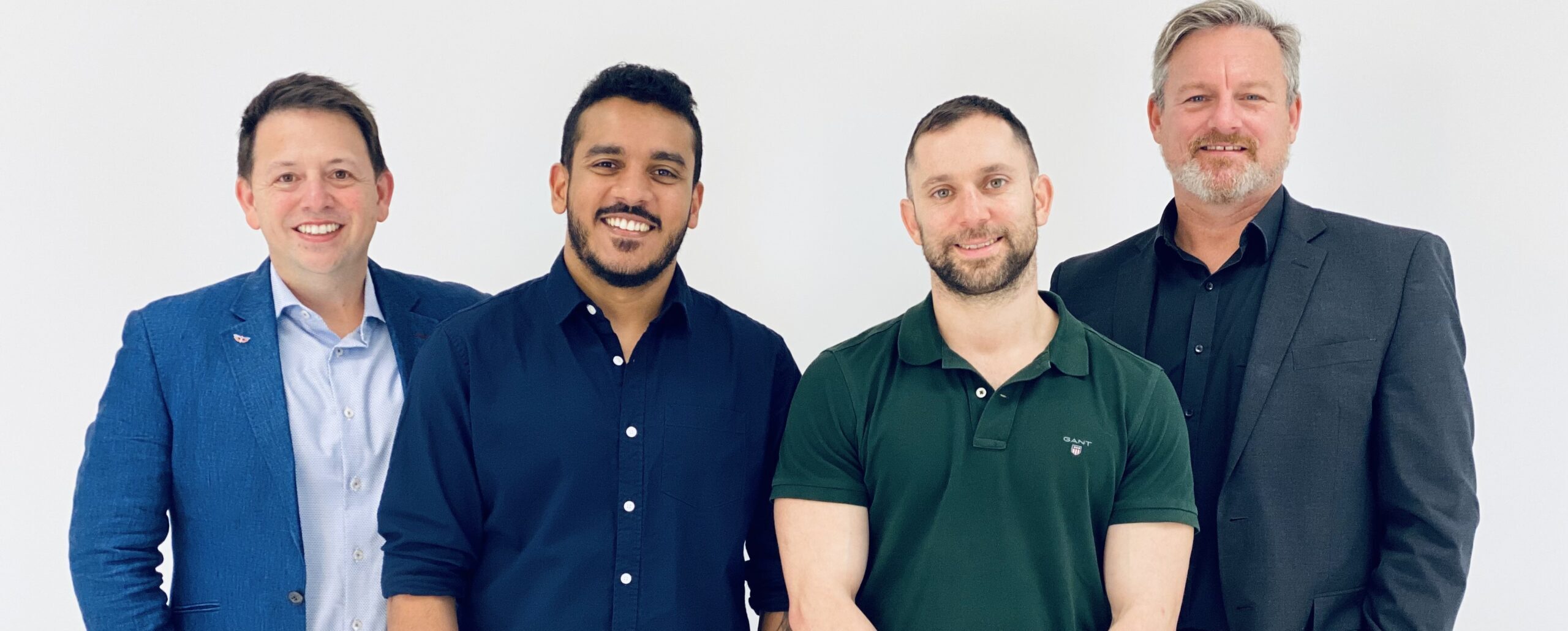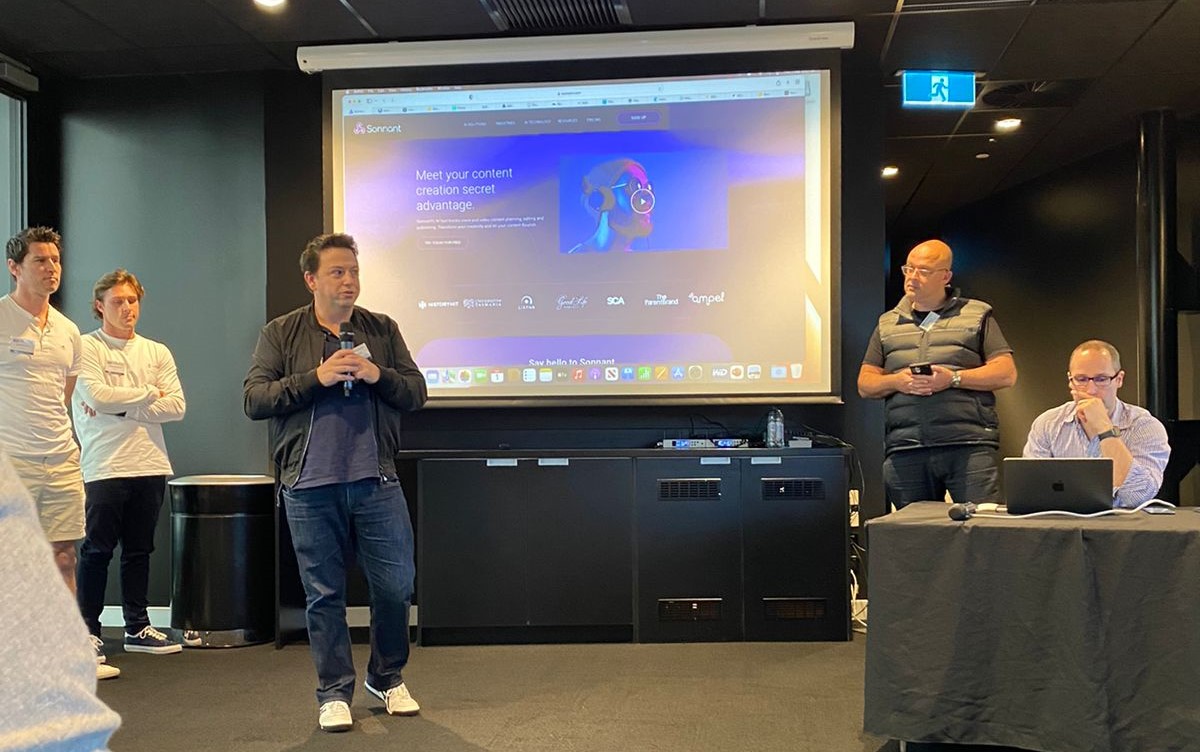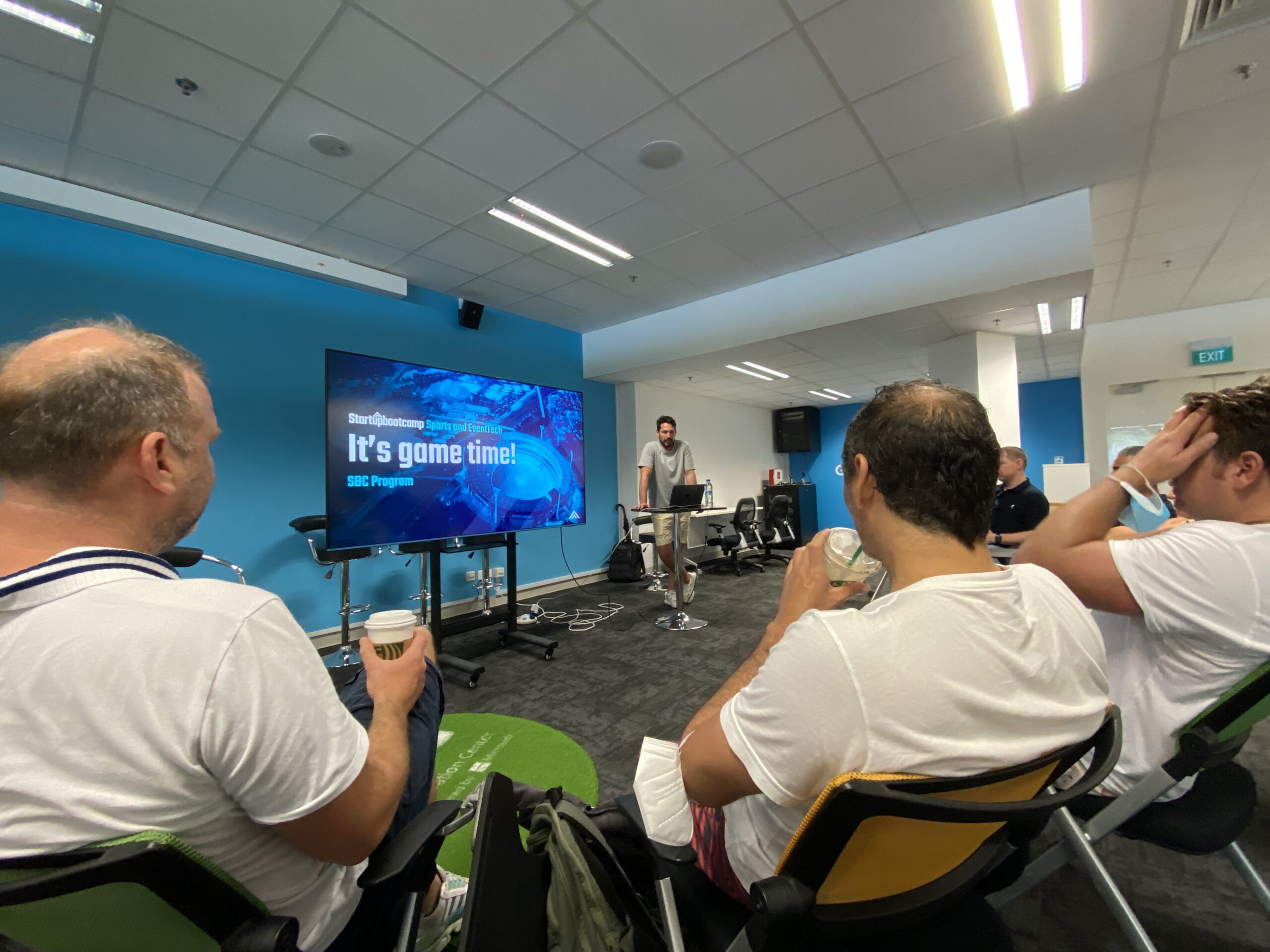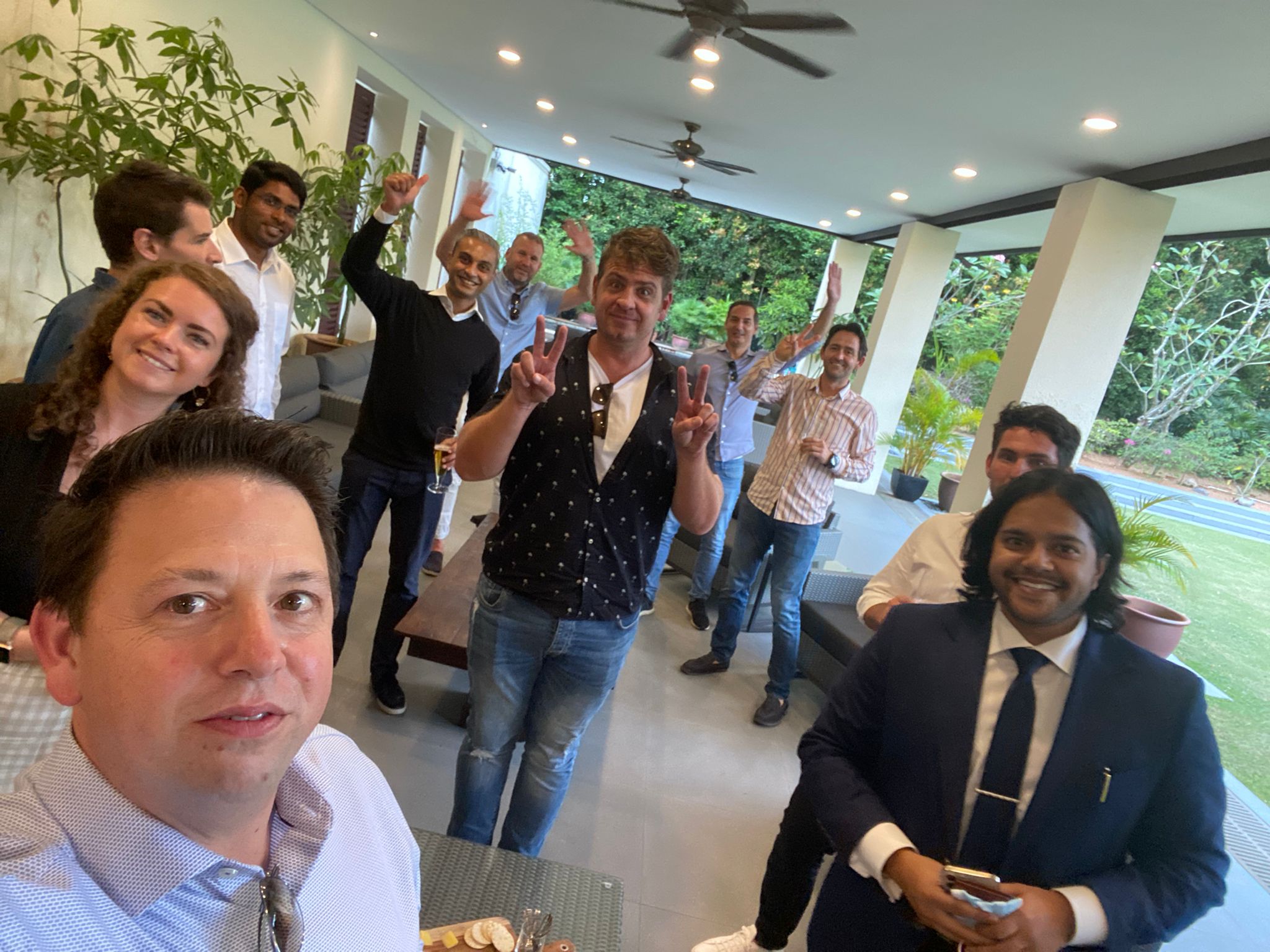What is Sonnant?
Q: Can you introduce yourself and tell us about your startup, Sonnant?
A: I’m Tony Simmons, the CEO and founder of Sonnant. Sonnant is an artificial intelligence platform that transforms spoken word content into data. This helps publishers automate their workflow and enhance their content monetization.
Q: How did the idea for Sonnant come about?
A: The idea originated from my podcasting experience back in 2016. Initially, it was a passion project, but as it gained sponsorship, it became more of an obligation. I had to edit, promote, and report back to sponsors. With my background in radio and experience in technology businesses, I wondered how technology could streamline this workflow. In 2016, AI was just emerging, and by the time we founded Sonnant in 2020, AI had become more prevalent. This journey led us to secure a significant client early on, and now we operate in Australia, America, and the United Kingdom.
Why Startupbootcamp?
Q: What motivated you to join Startupbootcamp?
A: Startupbootcamp appealed to us because it provided the focus we needed. In the tech industry, especially in traditional sectors, there are countless opportunities. Choosing the right path for Sonnant was a challenge. Startupbootcamp helped us narrow our focus and refine our strategy. It was a period of intense pitching, networking, fundraising, and product development. The feedback and advice we received during the program were invaluable and came at a crucial time for us.
Startupbootcamp Application Process
Q: Can you describe the application process for Startupbootcamp?
A: The application process for any accelerator, including Startupbootcamp, is quite rigorous. Initially, it involves filling out forms and explaining your business, which includes having a solid pitch deck. This is followed by meeting the cohort members through an online application process. If you pass this stage, you enter a more intensive second round of interviews. From there, you may be selected as one of the final ten for the cohort.
We were fortunate that this particular cohort was based in Melbourne, which was seeking local Australian startups. However, the cohort was quite diverse, with participants from Greece, the United States, and England. The selection process is as challenging as you’d expect. To succeed, you need to have a strong business concept, an effective pitch, and a compelling pitch deck.
Q: What aspects do you think set Sonnant apart during the Startupbootcamp application?
A: Timing played a significant role. We were already working with major Australian sports like cricket, Australian rules football, and rugby, which aligned perfectly with Startupbootcamp’s focus on technology changing the sports industry. Our vision of becoming a global company also sets us apart. We had a strong pitch about the changing industry and the essential role of technology in this transformation. Key factors like a large market, scalable business, and the right timing were crucial. Additionally, finding good founders is always a priority for accelerators, and I believe I met that criterion as well.
Inside Startupbootcamp Program
Q: Could you describe the structure of the Startupbootcamp program?
A: The program was intense and comprehensive. It included constant pitching, meetings, and document preparation over an 8 to 12-week period, culminating in a final pitch event. We had to pitch in various locations, including Singapore and Brisbane, covering aspects like technology, marketing, capital requirements, customer engagement, and business models. The program dissected every part of our business, providing a roadmap for growth. It was highly structured with scheduled events, guest appearances, daily Zoom calls, weekly check-ins, and a mix of one-on-one and group sessions. This structure allowed for a balanced approach between individual attention and collaborative learning among all cohort founders.
Q: Did Sonnant receive any funding from Startupbootcamp?
A: Yes, Startupbootcamp provided us with AUD 100,000, which was partly in cash. This funding was essential for covering travel expenses to various events in Singapore, and Brisbane, and for overseas participants to come to Australia. Additionally, we received significant non-cash benefits like AWS, Microsoft Azure, and Google Cloud credits, along with Stripe credits and other tech platform services. While this wasn’t direct cash in our bank account, it significantly reduced our cash burn for a year. Furthermore, there was an opportunity for follow-on investments from Startupbootcamp in later funding rounds, though it wasn’t guaranteed.
In terms of equity, Startupbootcamp takes a portion. However, the amount wasn’t excessive. They have a fixed methodology for valuation and a set percentage of equity they aim to acquire. The equity portion and the valuation they offered were reasonable and not overbearing for us.
Achieving Milestones and Overcoming Challenges
Q: What were some significant milestones you achieved during Startupbootcamp?
A: A major milestone was building a substantial customer pipeline with real sales opportunities. Gaining exposure across various industry segments and establishing credibility was another key achievement. The most important milestone, however, was using the program as a springboard for our funding round. Following the program, we successfully secured a term sheet for our seed round, which was crucial for our growth.
Q: Did you encounter any challenges during the program?
A: On a personal level, I faced challenges with a sick family member, which made the timing difficult. The program was intense, and managing personal issues was stressful but also rewarding. It provided a much-needed focus during a tough time.
Professionally, while this wasn’t my first startup and I had some idea of what to expect, for many in the cohort, it was their first experience. For instance, pitching to investors for the first time can be incredibly nerve-wracking. It’s a high-pressure situation with a lot of stress. However, the practice and experience gained in this environment are invaluable for any entrepreneur. Despite the challenges, the feedback and improvement we saw in our pitches and presentations were immensely rewarding. The program was as challenging as it was rewarding.
Sonnant’s Current Status and Future Goals
Q: What is the current status of Sonnant?
A: Currently, we have customers in the United States and the United Kingdom, and we are in the early startup phase. Since Startupbootcamp, we’ve significantly refined our focus and are moving towards achieving good recurring revenues, which is vital for reducing our cash burn and proving our business model. We’ve expanded our team, including a new staff member in North America. Initially, we were ahead of the industry’s transformation, but now we’re beginning to ride the wave of change. Looking ahead to 2024, we anticipate transitioning from a small startup to entering a series A funding mode and scaling up.
Q: Have you experimented with any growth channels?
A: Growth channels are always a challenge, especially in early-stage businesses. Free channels often lack the necessary push for effective outcomes. We’ve experienced some difficulties with B2B2C channels where there’s no immediate financial transaction. However, recently, our technical channels, particularly platform integrations, have started to show promise. Over the last 18 months, we’ve tried various strategies, but now we understand the importance of having financial commitments in channel agreements. This shift has helped us overcome hurdles and start seeing more productive outcomes from our channels.
Final Advice for Founders Considering Startupbootcamp
Q: Do you have any advice for founders thinking about applying to a startup accelerator?
A: My advice is simple: apply. Whether it’s your first startup or you’ve been through this before, an accelerator can be incredibly beneficial. I was initially skeptical, thinking I had enough experience and didn’t need it. However, the learning and acceleration I experienced were immense. The constant flow of feedback, both positive and negative, from experienced industry professionals, failed and successful founders and the opportunity to network is invaluable. An accelerator exposes you to diverse perspectives and challenges your assumptions. It’s not just about working in isolation with your co-founder; an accelerator truly lives up to its name by speeding up your growth and understanding of the business. So, regardless of your prior experience, I highly recommend applying to an accelerator.




